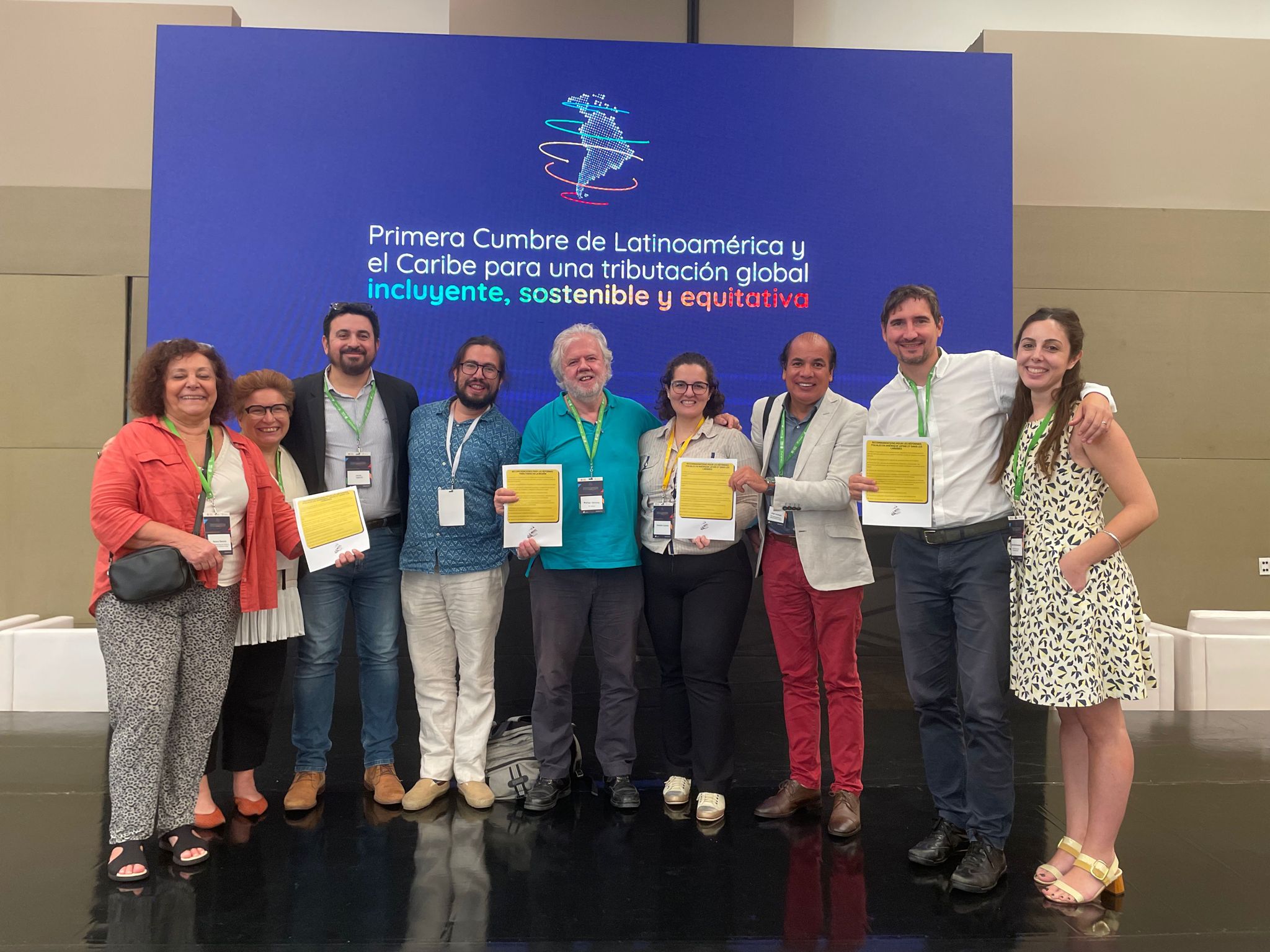
Last week, several governments, civil society organizations and movements from Latin America & the Caribbean marked a milestone in the fight for fiscal justice and human rights. The first regional Summit for inclusive, equitable and sustainable taxation, led to the signing of a historic declaration to promote tax cooperation and the launching of a regional platform for that goal.
Written by María Emilia Mamberti, CESR's Program Officer.
More than 120 representatives from a wide range of movements and organizations from the region came together to discuss their work and strategies around tax justice. People from the climate, gender, debt justice and human rights movements, as well as from trade unions, indigenous communities and other groups co-drafted a set of recommendations for governments participating in the Summit.
These recommendations call for tax reforms to “ensure the transition to a rights-based economy that protects the planet and future generations”, and to “incorporate human rights and environmental obligations as general principles to guide and inform tax decision-making”. The recommendations demonstrate how a diverse range of actors from several movements can find common ground, and also reflect CESR’s efforts to advance a Rights-Based Economy and for fiscal policies to be viewed through a human rights lens.
Indeed, civil society recommendations had a strong –and, we’d argue, historical– uptake during the Ministerial Summit. After the recommendations and the top priorities were presented to the government representatives participating in the Summit, governments deliberated and reached a consensus on which issues to prioritize. These largely reflect civil society concerns and proposals. It is noteworthy that the resulting document states that participating countries recognize the importance of using human rights and sustainable development goals as a general, overarching framework for fiscal policies. It also states that one of the key goals of the platform created through the declaration that governments signed in Cartagena is to build common regional positions that would allow Latin Caribbean countries to have a stronger voice in international tax negotiations. On that basis, governments agreed to prioritize in the thematic work of the recently launched platform:
1) The progressivity of tax systems in the region, recognizing the connection between taxation and inequality and the urgent need to address historical disparities in the region.
2) The assessment of tax benefits.
3) Green taxes and other fiscal tools in order to address the climate crisis and protect the environment; and
4) Taxation of the digital economy and of new forms of work.
Furthermore, ECLAC and the government of Colombia, who will exercise the first presidency of the platform, for the time being, announced the creation of a Permanent Consultative Council for civil society participation in the platform. This is essential to ensure that inclusiveness - one of the purposes of the Summit - is actually achieved. In turn, a genuinely participatory mechanism will enable Latin America and the Caribbean countries to show the world an alternative model for debating taxation that is fairer and more reflective of the needs and concerns of those most affected by the current state of affairs around tax.
The events from last week therefore mark a major step forward in promoting fairer taxation at the national, regional and international levels. However, they are only the first step of a long road. CESR therefore calls on governments across Latin America and the Caribbean to support the newly launched platform, to ensure it becomes a stable and strong mechanism with adequate political backing.